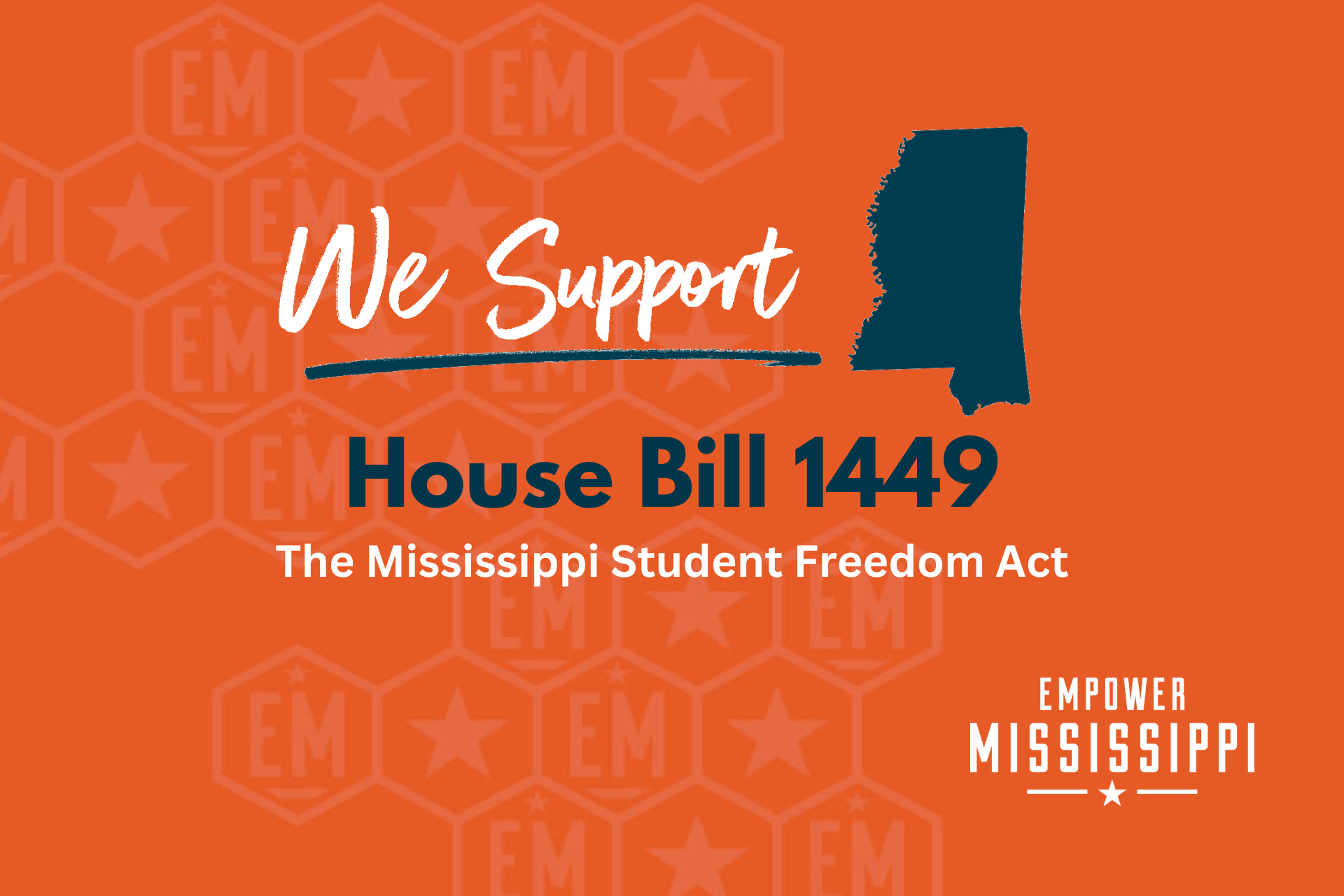HB 1449: The Mississippi Student Freedom Act

House Bill 1449, sponsored by Rep. Rob Roberson, would create the Mississippi Student Freedom Act to provide Magnolia Scholarship Accounts (MSA) to students.
An MSA is a taxpayer-funded account that families can use for the educational expenses of their child. This allows families to customize an education based on their specific needs. Under the proposal, MSAs could be used for:
- Tuition and fees for a non-public school.
- Payment for purchase of textbooks, curriculum or other instructional materials.
- Payment for educational services, including, but not limited to, tutoring or therapy.
- Fees related to co-curricular and extracurricular activities.
- Courses or contracted educational services provided by a public school.
- Fees for educational assessment and transportation provided by a fee-for-service transportation provider for the child to travel to and from a school.
- Computer hardware, Internet access, or other technological devices or services that are primarily used to meet a participant’s educational needs.
The program would be phased in so that it is universal by 2029.
For the 2025–2026 school year, any child who is eligible to enroll in K-12 public schools or who was enrolled in the Education Scholarship Account Program for the previous year and who qualifies for Medicaid or the Children’s Health Insurance Program (CHIP) would be able to participate in the new MSA program. Enrollment is capped at 1.5% of the state’s public school enrollment for the first year.
For the following year, the Medicaid and CHIP eligibility is removed and the cap increases to 3%. In 2027, the cap is increased to 4.5% and homeschool students would now be eligible for an MSA valued at $1,000. In 2028, the cap again increases, this time to 6%, before becoming eligible to all students by 2029.
As more states enact universal school choice programs, there is a significant body of research showing that private school choice programs, like education savings accounts, improve educational outcomes. For example:
- Researchers from the University of Arkansas conducted a meta-analysis (meaning an analysis of the studies that have been conducted on the subject) of the test score effects of private school choice programs globally. They found that students in the United States who participated in these programs experienced positive gains on test scores that equate roughly to 30 more days of learning in reading and math.
- An analysis of private school choice programs conducted by EdChoice noted that 5 studies found positive effects on educational attainment while no studies found negative effects.
An MSA would offer students additional pathways to success that may not be otherwise available to them under the current system. They empower parents to customize their children’s education by choosing the best educational opportunity – or combination of opportunities – based on the unique needs of each of their children.
Empower Mississippi supports this legislation.
HB 1449 has been referred to the House Education and Appropriations A Committees. You can read the bill here.